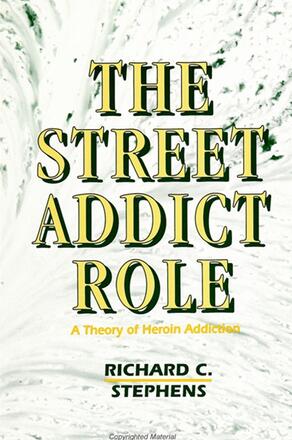
The Street Addict Role
A Theory of Heroin Addiction
Alternative formats available from:
Description
This book provides a new answer to the question, "Why do people use heroin and other street drugs?" Drawing upon a growing body of studies of drug users conducted by sociologists and anthropologists, it attempts to integrate their findings into a theoretically unified sociocultural explanation of heroin use. The theory, which draws heavily upon the insights of symbolic interactionist and role theory, posits that there is a street subculture of heroin users. The chief role in this subculture — the street addict role — becomes a blueprint for living for many heroin users. Addicts are heavily committed to this role and organize their behavior and self-identification around it. From this basic starting point, the theory explains how persons become and remain addicts and how they may eventually give up addictive behavior.
Richard C. Stephens is Professor of Sociology, Cleveland State University.
Reviews
"I find this book clear, comprehensive, and interesting. Stephens has done a fine job in reviewing the relevant literature and bringing to bear along with it his observation encompassing a distinguished career as a drug abuse researcher.
"The theory which he presents is an interesting, intriguing one. He is able to explain the persistence and pervasiveness of the heroin addict's behavior. He effectively challenges previous conceptualizations which involve an emphasis on individual pathology or an over-reliance on the pharmacological effects of the drugs. The theory is interesting because it makes sense intuitively to those of us who have had extensive experience with these kinds of drug abusers. It provides a plausible explanation for why 'junkie behavior' is so difficult to extinguish in the patients/clients that we work with. The theory is also quite interesting because Stephens has been able to plausibly explain the sociocultural roots of this behavior." — Harvey A. Siegal, Professor and Director, School of Medicine, Wright State University